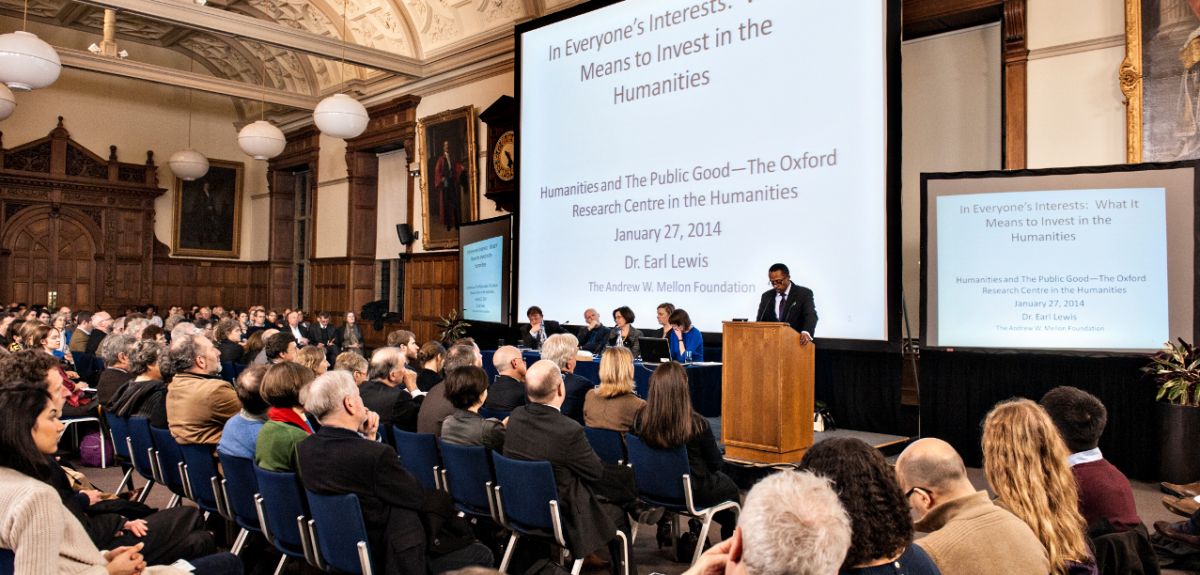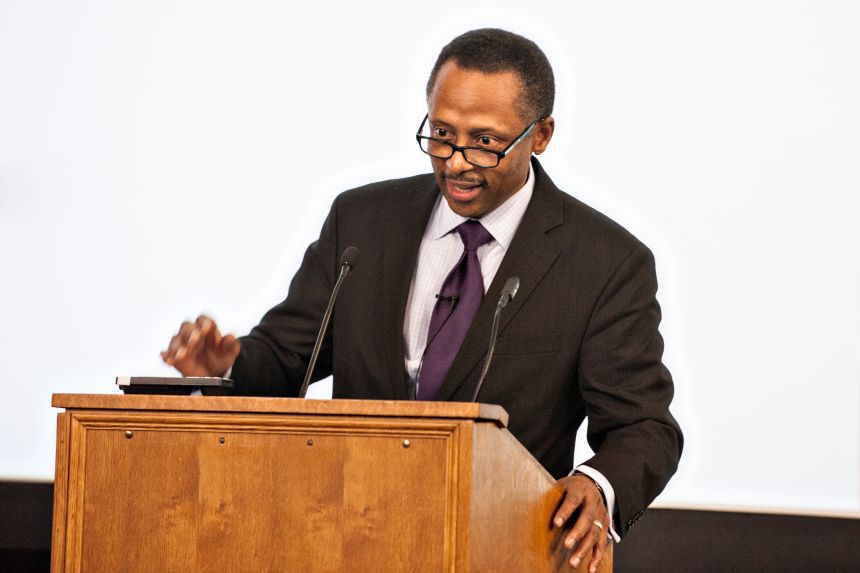
'Why invest in the humanities? Because we're human'
Leading figures from the arts, science and public policy came together in Oxford last night to discuss the value of the humanities in the 21st century.
Around 450 people packed into the University's Examination Schools to hear the views of, among others, Guardian chief arts writer Charlotte Higgins and Oxford mathematician Professor Marcus du Sautoy.
The event, which included a keynote speech from Dr Earl Lewis, President of the Andrew W. Mellon Foundation, kicked off the Humanities and the Public Good series, organised by The Oxford Research Centre in the Humanities (TORCH).
Among the audience given a warm welcome by the University's Vice-Chancellor, Professor Andrew Hamilton, were a number of school groups from across the UK.
Dr Lewis, in his speech titled 'In Everyone’s Interests: What it Means to Invest in the Humanities', said: 'Three quarters of a century ago, Virginia Woolf posed the question: if you had just three guineas to share, what would you support? In each age we face ostensibly insurmountable challenges that require choices to be made, resources to be allocated and areas to be ignored.
'The American Academy of Arts and Sciences argued in a recent report that we live in a world characterised by change, and therefore a world dependent on the humanities and social sciences.'
 Dr Earl Lewis gave the keynote speech
Dr Earl Lewis gave the keynote speechHe added: 'We have to consider that the humanities continue to demonstrate the vibrant and dynamic tension between continuity and change. Longstanding disciplines such as literature, history and philosophy remain important to scholarship and discovery. And for nearly a quarter of a century we have also been embracing interdisciplinary scholarship.
'The humanities give us a fuller understanding of our world – past, present and future. The use of one's precious guineas in support of the humanities must start with a clear sense of its narrative, backed up by data. Investment then follows because the case for support is clear. That is why it is in everyone's interests to support the humanities and the public good – doing so advances our shared future.'
Responding to Dr Lewis's speech, Dame Hermione Lee, President of Wolfson College, Oxford, argued that those defending the humanities should not do so in an 'indignant, embattled or sentimental way'. She added: 'Why should we invest in the humanities? Because we're human.'
Charlotte Higgins, herself an Oxford classics graduate, called for the humanities not to be measured by the same criteria as the sciences, while Professor du Sautoy hailed the value of narrative, storytelling and collaboration in his own discipline.
Nick Hillman, Director of the Higher Education Policy Institute and a late addition to the panel, suggested that humanities scholars need to become better at engaging with policy makers, adding that the humanities have an unfortunate tendency to fight the previous battle rather than the current one.
And in an audience question and answer session chaired by Professor Shearer West, Head of the Humanities Division at Oxford, topics covered included why a sixth former should study a humanities subject at university; the value of longitudinal career studies into humanities graduates; the relationship between humanities study and employment prospects; and funding for the arts and humanities.
Information on the rest of the Humanities and the Public Good series can be found here.
Images: Stuart Bebb (stuartbebb.com)